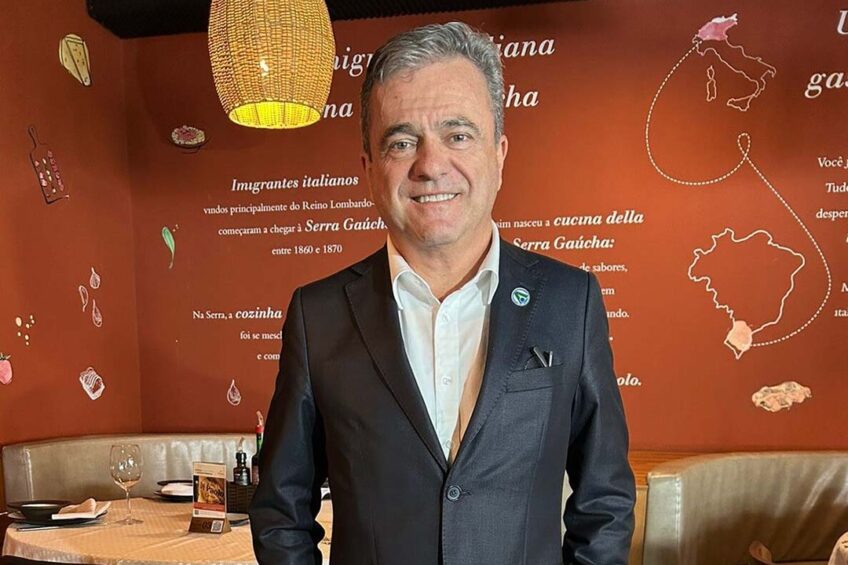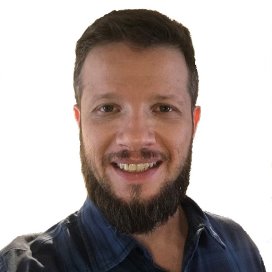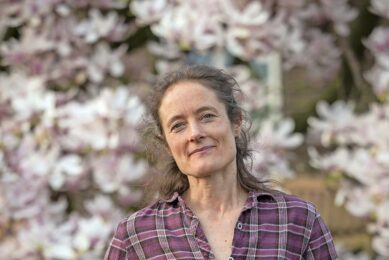Ricardo Santin, Int’l Poultry Council: “There should be no borders for food”

Newly-appointed International Poultry Council chair, Ricardo Santin, recently presented his take on the poultry industry all over the globe – both its challenges and opportunities. He forecasts growth in animal protein production of 1 million tonnes per year and condemns protectionism under the slogan “no borders for food”.
The increase in food production that is needed to meet global demand, on the one hand, and sustainability, on the other, are seen as incompatible by many observers, but not by Ricardo Santin, president of the International Poultry Council. He thinks most skeptical people have never visited a food production system. Poultry World interviewed him about production forecasts and market dynamics.
You forecast animal protein production growth of 1 million tonnes per year. Is that sustainable with the limited availability of land and feed?
‘’Yes, I believe so. If we look at USDA data and other sources, the need for more is clear. It is all about demand, new technologies to produce more with fewer resources, an increase in disposable income in developing countries and the resulting switch from carbohydrates to proteins. These are the main drivers for the decades to come. There will be more people to feed and – we all hope – less hunger, thanks to our efforts to increase world food production. Brazil, for instance, has increased its grain production without an increase in land use.
What do you see as the main challenges to providing food for a growing world population?
Firstly, fighting fake news and misinformation. It is important to be transparent and open to showing what we do and how we do it. People want to know what they eat and how it is prepared. Our mission is to work on our communications. We really do an incredible job of feeding people all around the world but sometimes we make mistakes in communicating that. I believe this really is a major problem for all producers intending to increase production, because misinformation causes many problems. Let’s think, for example, about how many unnecessary obstacles and laws are created by people who have never visited a food production system.
On top of that we should promote and share new technologies for greater productivity. Research is part of what we do as poultry producers but sometimes the necessary data is not available to all countries, I believe in the exchange of technologies and a political effort to enhance production. Exchange like that should be promoted by organisations such as the International Poultry Council and other international associations.
Lastly, the battle against new diseases. It’s important to understand the role of new technologies in this context, such as avian influenza and the way that countries choose to face it. Promote the creation of vaccines, work on the standardisation of international rules on adopting vaccination or decide together not to vaccinate. Of course, we should always strive to further the main goals of the International Poultry Council and the world poultry sector. Sustainability goals – specially food security and environmental conservation – and the quality of food production. Thinking about the prudent use of antimicrobials and other residues should all be top of mind.
How much potential do you see for further growth in the future? Will that meet the world’s demand?
We have really great potential to increase corn and soy production in Latin America. Talking about Brazil, for example, some regions have 2, even 3, harvests per year. EMBRAPA and other research institutes are looking into the possibility of 4 harvests during the season. All of these efforts will increase productivity without harming woodlands, for instance, in the form of deforestation. Argentina and Paraguay, too, have incredible and increasing levels of production.
The world cannot do without the US and Brazil. Can you comment on both countries and the animal protein volume increase each of them can manage?
The world cannot do it without the US, Brazil, the EU, China, and all local players. We live in an integrated supply system. When a nation has not enough produce to balance its demand, it finds support from international traders in Brazil, the US, the EU, Turkey, Russia, Thailand and elsewhere. Of course, it all depends on the conditions, as grain and meat supplies vary per region, but still, in this way the US, Brazil, the EU and other big exporters can support local demand by complementing local producers.
You stated that there should be no borders for food. What are the main challenges you see at this moment in time?
I believe that, when working, all producers need to think about their mission of eradicating hunger and improving food security for all countries. We must work together on this. All our decision-makers need to realise that we are in this together. IPC provides a good example of how to do that. We need to share and promote our International Poultry Council model all over the world. Together we can promote greater sustainability, fight against protectionism and reduce the overall costs of production.
What is your view on the role of Europe in feeding the world? Is the EU using all its potential or is it stuck too much in an environmental, sustainable and welfare discussion?
Europe can meet more than 90% of its own demand and export more than 1 million tonnes. It has a huge role in all world food security. Of course, there is always more potential but there are also challenges. Discussions about sustainability are really important; however, I believe the authorities also need to think more about how to offer more food to people – all people. This is the United Nations’ sustainability development goal SDG 02 for a reason.












